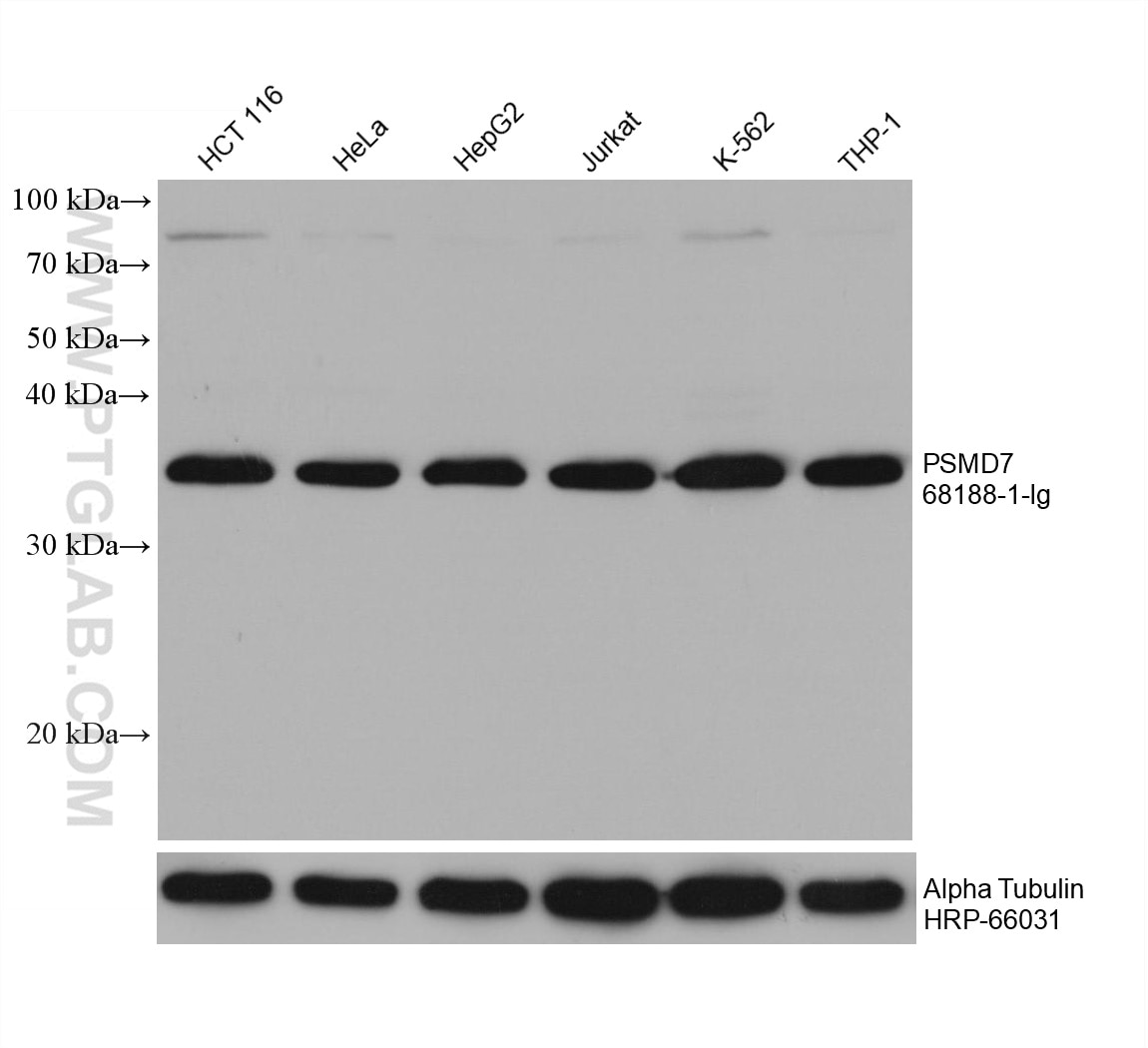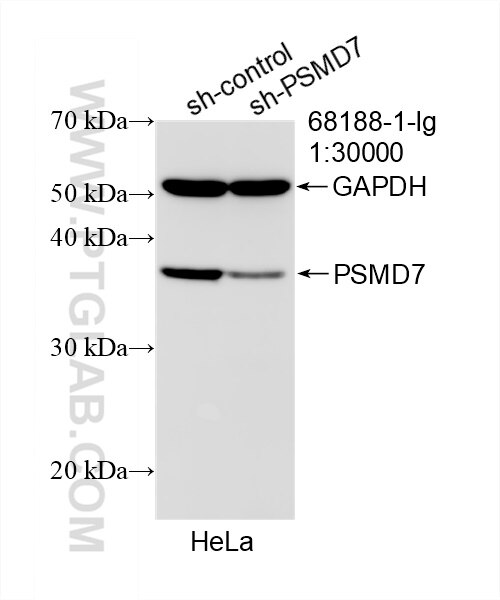Tested Applications
| Positive WB detected in | HCT 116 cells, HeLa cells, HepG2 cells, Jurkat cells, K-562 cells, THP-1 cells |
Recommended dilution
| Application | Dilution |
|---|---|
| Western Blot (WB) | WB : 1:5000-1:50000 |
| It is recommended that this reagent should be titrated in each testing system to obtain optimal results. | |
| Sample-dependent, Check data in validation data gallery. | |
Published Applications
| WB | See 1 publications below |
Product Information
68188-1-Ig targets PSMD7 in WB, ELISA applications and shows reactivity with Human samples.
| Tested Reactivity | Human |
| Cited Reactivity | human |
| Host / Isotype | Mouse / IgG1 |
| Class | Monoclonal |
| Type | Antibody |
| Immunogen | PSMD7 fusion protein Ag9305 Predict reactive species |
| Full Name | proteasome (prosome, macropain) 26S subunit, non-ATPase, 7 |
| Calculated Molecular Weight | 324 aa, 37 kDa |
| Observed Molecular Weight | 37 kDa |
| GenBank Accession Number | BC012606 |
| Gene Symbol | PSMD7 |
| Gene ID (NCBI) | 5713 |
| RRID | AB_2935278 |
| Conjugate | Unconjugated |
| Form | Liquid |
| Purification Method | Protein G purification |
| UNIPROT ID | P51665 |
| Storage Buffer | PBS with 0.02% sodium azide and 50% glycerol, pH 7.3. |
| Storage Conditions | Store at -20°C. Stable for one year after shipment. Aliquoting is unnecessary for -20oC storage. 20ul sizes contain 0.1% BSA. |
Background Information
Proteasome 26S subunit, non-ATPase 7 (PSMD7), an ATP-independent component of the 19S regulatory subunit, is a member of the JAMM/MPN domain-associated metallopeptidase (JAMM) DUB family. PSMD7, as a core component of the 26S proteasome, is critical for the degradation of ubiquitinated proteins in the proteasome. PSMD7 arrests cell cycle in the G2/M phase during HIV infection. The molecular weight of PSMD7 is 37 kDa. (PMID: 34512150, 34234864)
Protocols
| Product Specific Protocols | |
|---|---|
| WB protocol for PSMD7 antibody 68188-1-Ig | Download protocol |
| Standard Protocols | |
|---|---|
| Click here to view our Standard Protocols |





